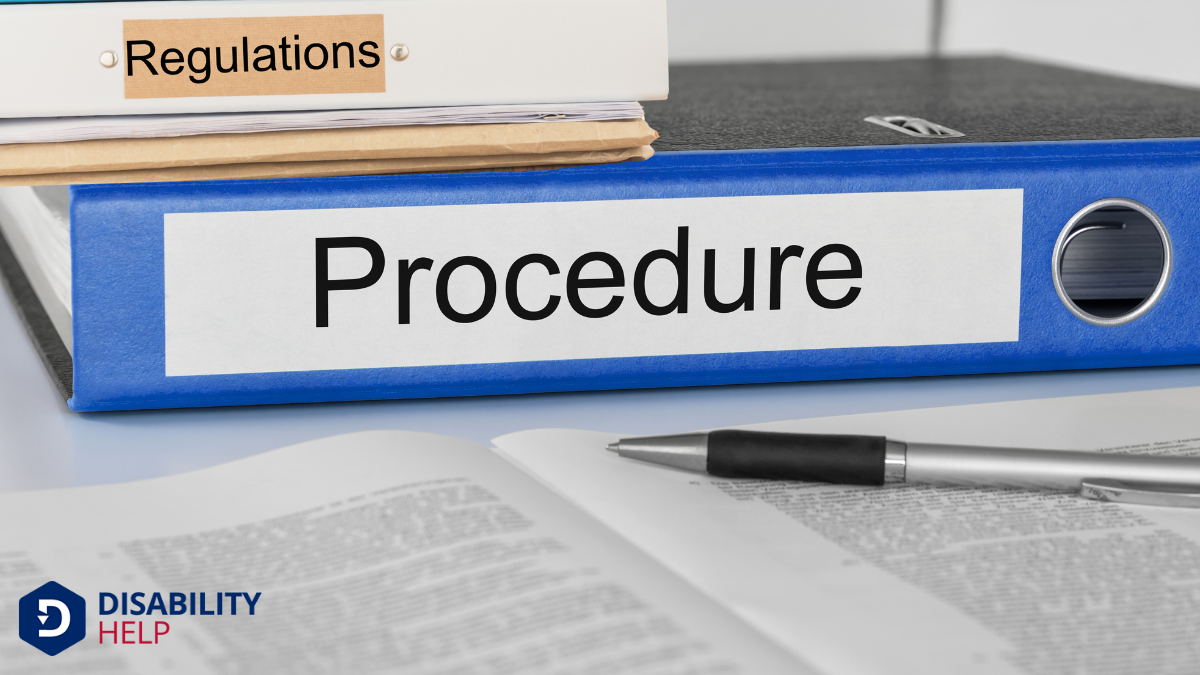As an employer, you might wonder about your role in workers' compensation claims. While you can't file a claim on behalf of an employee, your involvement is essential in ensuring that the process goes smoothly. From reporting injuries to your insurance provider to helping with necessary documentation, there's a lot you need to know. What steps can you take to support your employees and protect your business interests? Let's explore this further.
Key Takeaways
- Yes, employers can file a workers' comp claim on behalf of their injured employees.
- Employers must promptly report workplace injuries to their workers' compensation insurance provider.
- Timely employer-initiated claims ensure employees receive necessary medical benefits and wage replacement.
- Accurate documentation and clear communication are essential when employers file workers' comp claims.
- Filing the claim helps employers manage costs and supports a safe work environment.
Understanding Workers' Compensation
When it comes to understanding workers' compensation, it's important to know that this system is designed to protect both employees and employers.
As an employee, if I get injured or fall ill due to my job, workers' comp provides medical benefits and wage replacement. It guarantees I'm cared for without having to prove employer negligenceA legal concept where a party fails to exercise reasonable care, resulting in harm to another person..., which can be a huge relief during stressful times.
For employers, it limits liability by preventing employees from suing for workplace injuries, creating a more predictable environment.
Navigating this system might seem challenging at first, but it's essential to grasp its basics. Knowing my rights and responsibilities helps me feel secure.
It also highlights the importance of timely reporting and accurate documentation to streamline any claims process.
The Employer’s Role in Workers' Compensation Claims

When it comes to workers' compensation claims, my role as an employer is essential in reporting workplace injuries promptly and accurately.
I need to guarantee that I assist the claim process by providing the necessary documentation and support to both the injured employee and the insurance company.
Reporting Workplace Injuries
As an employer, it's vital to understand your responsibility in reporting workplace injuries promptly to guarantee the well-being of your employees and compliance with legal requirements.
When an injury occurs, you must report it to your workers' compensation insurance provider as quickly as possible. This guarantees your employee receives timely medical attention and benefits. Delays in reporting can lead to complications in processing the claim and may even result in penalties for non-compliance.
It is essential to have a clear process for documenting and reporting injuries. Make certain your employees know how to report incidents immediately, and maintain accurate records.
This practice not only fosters a safe work environment but also protects you legally. Remember, transparency and prompt action are key in handling workplace injuries effectively.
Assisting Claim Process
Having a solid reporting process is just the start; actively assisting in the claim process is another essential aspect of managing workplace injuries.
As an employer, I can take specific steps to guarantee a smooth and efficient process for everyone involved. Here’s how you can assist:
- Provide Accurate Information: Make sure all details in the claim are correct and thorough. This prevents delays and confusion.
- Maintain Open Communication: Keep in touch with the injured employee, showing support and addressing any questions they might have.
- Coordinate with Insurers: Work closely with the insurance company to track the claim's progress and resolve any issues.
- Facilitate Return-to-Work Plans: Collaborate on a plan that helps the employee return safely and gradually.
These steps can enhance the claim process effectively.
Legal Obligations for Employers
Although maneuvering through the complexities of workers' comp claims can be intimidating, understanding an employer's legal obligations is essential for compliance and employee well-being.
As an employer, I'm responsible for maintaining a safe work environment and promptly addressing any workplace injuries. I must report injuries to my insurance provider within the timeframes specified by state laws, ensuring timely processing.
It's vital to display workers' comp information prominently, informing employees of their rights and procedures. I'm obligated to cooperate with the insurance carrier during investigations and provide any requested documentation.
Protecting employee privacy is another key obligation; I must handle personal and medical information confidentially. Adhering to these legal requirements not only fulfills my responsibilities but also supports a fair and transparent claims process.
The Process of Filing a Claim
When you're ready to file a workers' comp claim, understanding your role as an employer is essential.
I'll guide you through the necessary documentation you need to gather and the important timelines you must adhere to for a smooth submission process.
Let's make certain you're well-prepared to handle this responsibility efficiently.
Employer's Role Explained
As an employer, you're tasked with several responsibilities when a worker's comp claim arises, and understanding the process can streamline the experience for everyone involved.
First, promptly report the injury to your insurance carrier. This step guarantees timely claim processing.
Second, maintain open communication with the injured employee, showing your support and understanding.
Third, cooperate with the insurance adjuster by providing any requested information or access to the workplace. This can help in evaluating the claim accurately.
Fourth, facilitate the employee's return-to-work process by considering any necessary accommodationsModifications or adjustments in healthcare settings to support patients with disabilities..
Here's a quick checklist:
- Report the injury immediately.
- Communicate with the injured employee.
- Cooperate with the insurance adjuster.
- Support the employee's return to work.
Following these steps can help manage claims efficiently.
Required Documentation Details
To successfully file a workers' comp claim, you'll need to gather and submit specific documentation to guarantee the process goes smoothly.
First, make sure you have a completed incident report detailing the accident and injury. This report should include the time, date, and location of the incident, as well as any witnesses.
Next, obtain medical records from the employee's doctor, outlining the injury and treatment planA detailed plan developed by healthcare professionals to treat a specific health condition, outlinin.... You’ll also need the employee’s personal details, like their job title and identification number.
Don’t forget to include any communication records between you and the employee regarding the injury.
Finally, fill out the workers' comp claim form accurately. By preparing these documents carefully, you’ll streamline the process and help your employee receive the benefits they need.
Submission Timeline Essentials
Gathering the right documents is only part of the equation; understanding the timing for submitting a workers' comp claim is just as important.
If you’re an employer, you need to guarantee that the claim is filed promptly to avoid complications. Here’s a brief timeline to guide you:
- Immediate Reporting: As soon as an injury occurs, report it to your insurance carrier. Delays can lead to claim denial.
- Employer's First Report: Submit this report to the state workers' compensation board within a few days, typically 7-10 days, but verify your state's specific requirements.
- Employee's Claim: Ensure that your employee submits their claim form promptly. Some states require this within 30 days.
- Ongoing Follow-Up: Keep track of deadlines and guarantee all parties are informed and involved.
Timing is essential for a smooth process.
Benefits of Employer-Initiated Claims

Initiating a workers' comp claim as an employer can offer several advantages that you mightn't have considered. By taking the proactive step to file, you demonstrate responsibility and care for your employees' well-being. This action can foster a positive workplace culture, showing your team that you prioritize their health and safety.
Additionally, it can help manage costs by controlling the narrative and ensuring accurate reporting of incidents. When you file, you also have the ability to monitor the process closely, ensuring compliance with legal requirements and timely benefit distribution.
This proactive approach can prevent potential disputes or misunderstandings down the line, ultimately maintaining a harmonious work environment and protecting your business from unforeseen legal complications.
Potential Challenges in the Filing Process
While traversing the workers' comp claim process as an employer, you might encounter several challenges that could complicate matters.
First, understanding the specific requirements and deadlines for filing can be overwhelming. Each state has its own rules, and missing a deadline might jeopardize the claim.
Second, gathering accurate and thorough documentation is essential, yet it can be time-consuming and complex.
Third, you may face disputes over the claim's validity, requiring substantial evidence to support the case.
Fourth, managing communication with insurance companies can be frustrating; they might request additional information or delay responses, which can stall the process.
Here's a quick overview of potential challenges:
- Understanding rules and deadlines
- Collecting detailed documentation
- Disputes over claim validity
- Communication with insurers
Impact on the Employee-Employer Relationship
Steering a workers' comp claim doesn't just affect the administrative side; it can also strain the employee-employer relationship. When I decide to file a claim, you might feel uneasy, wondering if I'm questioning your loyalty or performance.
It's essential we maintain open communication to prevent misunderstandings. I'll guarantee you understand the steps and reasons behind the claim, which can help preserve trust.
This process might feel intrusive, but remember it's about guaranteeing your safety and rights. Your health is my priority, and this claim isn't a reflection of dissatisfaction.
Instead, it's a necessary step to secure the benefits you deserve. By approaching this collaboratively, we can navigate the complexities together and strengthen our professional bond rather than weaken it.
State-Specific Regulations and Procedures

Understanding the nuances of workers' comp claims requires attention to the specific regulations and procedures that vary by state. As an employer, I'm aware that maneuvering through these differences can be challenging.
Each state has its own set of rules that dictate how claims are filed and processed. To help you understand better, here's a simplified breakdown:
- Coverage Requirements: Some states mandate workers' comp insurance for all employers, while others have exceptions based on business size or industry.
- Claim Filing Deadlines: Deadlines for filing claims vary, so knowing your state's timeline is vital.
- Employer Responsibilities: These can include providing claim forms, reporting injuries, or maintaining records.
- Dispute Resolution: Each state has its own process for handling disputes, whether through mediation or formal hearings.
Understanding these elements guarantees compliance and protects both parties.
Best Practices for Employers in Handling Claims
When managing workers' comp claims, adopting best practices is essential to guaranteeing a smooth and efficient process.
I've found that clear communication with employees from the start is vital. Informing them about their rights and the steps involved helps prevent misunderstandings.
Documenting every detail promptly is another key practice. This includes incident reports, medical evaluations, and any communication with the employee.
Training staff on workers' comp procedures also makes a big difference. It guarantees everyone knows what to do when an incident occurs.
Additionally, maintaining a supportive environment encourages employees to report injuries promptly, which helps manage claims more effectively.
Lastly, regularly reviewing and updating policies guarantees they align with current regulations, reducing the risk of non-compliance and potential penalties.
Conclusion
As someone who's navigated the workers' comp process, I can't stress enough how essential it is for employers to be proactive and supportive. By understanding your role, meeting legal obligations, and maintaining open communication, you help guarantee a smooth claims process for your employees. Not only does this foster a positive work environment, but it also minimizes disputes. Remember, your involvement is critical in supporting your employees' recovery and maintaining a strong, trusting relationship.






